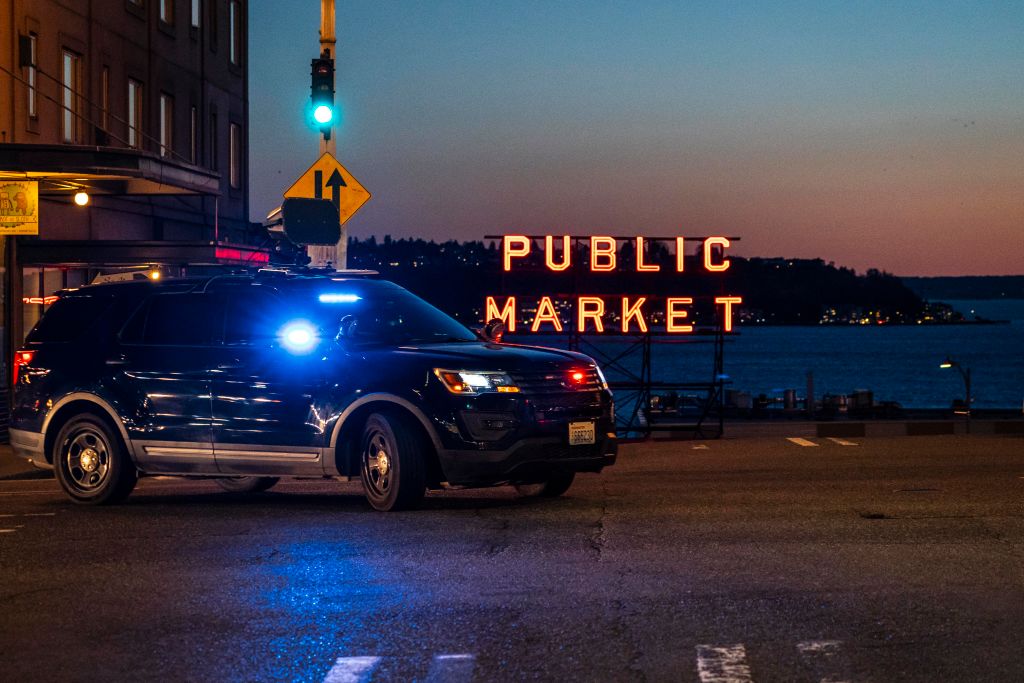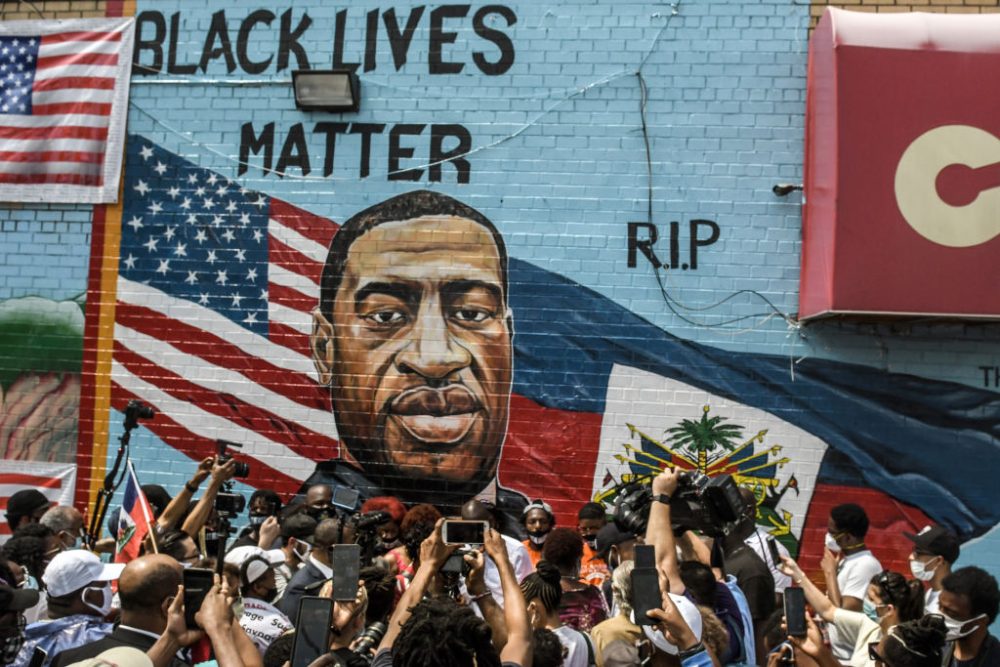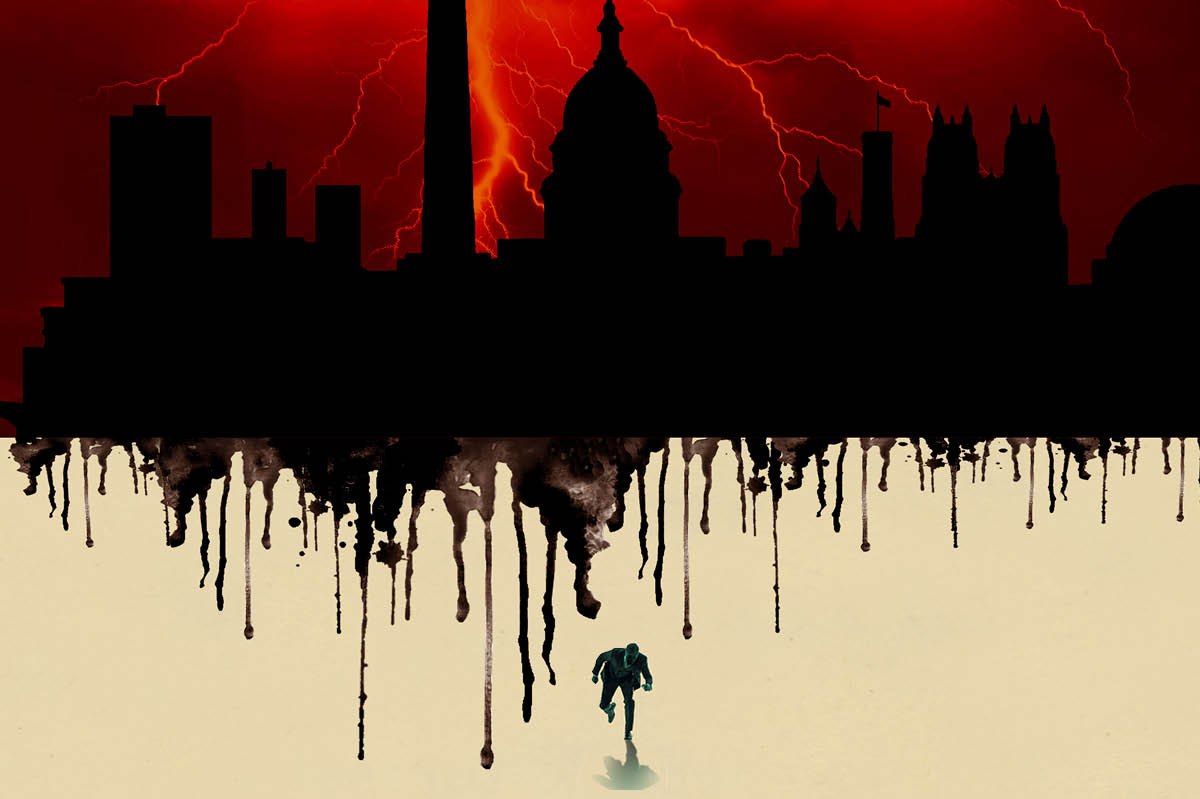There are probably better ways to start your fifteen-hour work shift than to hear the words: “Fire at the Renton Avenue gas station. Pump still leaking fuel. Possible injuries. Attend scene immediately.”
That was the stark dispatch that came over the radio of the King County Sheriff’s car driven by thirty-two-year-old Deputy Cy Brame, one of 720 law enforcement officers who serve the needs of half a million people living in the sprawling unincorporated areas around Seattle. I recently joined him on a characteristically drizzly early March afternoon on his beat behind the wheel of a black Ford Interceptor SUV. “You’re lucky,” said Deputy Brame, with a thin smile. “The last ride-along I had was here all day without an emergency.” At that the whooping siren suddenly came on above my head, and we were off speeding past blurred red lights and careening through rapidly emptying intersections on our way to the scene of the incident about two miles away.
When we arrived there ninety seconds later, the raging inferno was revealed as something rather more mundane: two young men in a rented U-Haul truck had managed to clip the edge of a gas pump on their way out of the station forecourt. Now they were standing, full of remorse, by the side of their vehicle parked just a few feet away. Deputy Brame got out in his all-black uniform and baseball cap, a formidable array of weaponry hanging on his belt (and wearing the standard-issue bulletproof vest) to speak to them, making voluminous notes about their registration and insurance before amicably waving them on their way. “A lot of the job’s like that,” he said, watching his colleagues from the fire department mark off the area with red tape. “I’d say it’s at least 80 percent sorting things out and calming people down, not high-speed pursuits and blazing guns.” The deputy drew my attention to a sticker on the glove-box just in front of me: “No Duty is So Important and No Call So Urgent that We Cannot Proceed with Caution and Arrive Safely,” it read.
Despite the paperwork, Brame expressed his love for the job. “Most people are friendly”, he assured me. “Probably nine out of ten folks smile and wave as you go by, while the tenth gives you the finger.” There were exceptions to this rule, he admitted, naming a locally notorious apartment complex with an impressive number of broken-down vehicles and young women dressed in flimsy shorts and T-shirts standing at its front entrance. Not for the last time that day, I could feel my eyeballs protrude slowly from their sockets, and then slowly retreat again, as we drove by. “We won’t even go in there without back-up,” Brame told me, before drawing my attention to a small orange button on the car’s center console. “If you ever see I’m in trouble, push that and every law-enforcement officer within ten miles will come to our assistance,” he said mildly.
The shift turned eventful again a few minutes later, when a call about a “possible trespass” at the local 7-Eleven revealed a powerfully intoxicated man of about forty who was accosting customers on their way in or out of the store’s front door. Sighing, Deputy Brame got out to speak to him, displaying more patience in the ensuing exchange than many of us might have managed. In time, the man wandered off into the middle of the road and flagged down a passing city bus which obligingly stopped to pick him up. “We can’t ever lock up a trespass, unless it’s a case of DUI or domestic abuse,” Brame said. “Most of the time I’ll just speak to them, and try to defuse the situation that way.”
Following that came two welfare checks. A woman had been seen sitting at a bus shelter, a plastic bag of debris clutched to her chest and a blanket draped over her shoulders, apparently in some distress. Deputy Brame parked the car and walked over, all the hardware (weighing some twenty to thirty pounds, he told me) again conspicuous on his hips. “She’s OK,” he announced on his return, without elaborating. In short order, we were off to a narrow, tree-lined road where an elderly man had assembled a tent for himself perilously close to the line of passing traffic. The man told us that a friend of his had been struck and killed in the same location, and that he had elected to bivouac there as a form of tribute. Not commenting on the internal paradox of the man’s choice of residence, Brame contented himself with helping him move his belongings to the comparative safety of the leafy verge a few feet away from the busy roadside. Both these incidents later obliged the deputy to complete lengthy reports.
“At least 80 percent of the crimes I see are by repeat offenders, and maybe 15-20 percent are ones where someone gets in a bad situation, usually involving drugs,” Brame told me. “But a lot of the day-to-day stuff isn’t criminal at all. You’re always treading a line between being the local authority figure and a sort of therapist.” He spoke of a new policing environment of heightened scrutiny and occasional resentment. Within moments of an incident, onlookers can gather and start recording on smartphones. “Boom, they’re out there, they’re on it. Some of them will be baiting you. Maybe they think they’ll get to be famous.” He shrugged. “It’s part of the job.”
As the day continued I found it hard not to warm to Deputy Brame, and indeed his colleagues on the King County force as they navigate the wasteland of gangs, prostitution and drugs that make up their immediate environment, with the legions of the merely confused or dispossessed as their other primary points of contact with the community. The deputy cheerfully told me that he was working a double shift that day, and had been for several days in the past, in order to save up for his imminent wedding and Greek honeymoon. I found I had to ask him whether he thought attitudes to the police as a whole had changed since the events of 2020. “Most ordinary folks are still friendly,” he assured me. “The real issue is that about 100 officers left in 2021-22 for failing to comply with the state’s mandatory-vaccination policy. We still haven’t made the numbers up.”
Before we parted, Brame set off on another of those unglamorous but necessary calls that constitute the basic fabric of the beat officer’s routine. A concerned citizen had called in about a loose power line that was dangling from a utility pole dangerously close to a line of cars snaking down the hill towards a busy intersection by the Renton airport and adjacent Boeing assembly plant. All the lights had been knocked out in the area, including those in the normally neon-lit branch of McDonald’s just across the street. On our way to the scene I brazenly asked my host if he had ever been shot at, and he told me that no, luckily he hadn’t, but that, as per department policy, he routinely drew his own weapon in certain situations.
“It’s not like we’re immune to fear,” said Brame, a man who looked to me as if he could probably take care of himself if the need arose. “We’re still human and have emotions. Our lives aren’t perfect. But we just have a job to do.”
By the time we arrived on the scene, a whole convoy of utility trucks and men and women in bright-orange reflective vests were already working to secure the stray power line and restore service to the nearby homes and businesses. “That’s the first time City Light’s ever beaten me to a call,” Brame said, surveying the scene with a smile and a brief affirmative stroke on his computer keyboard. “But I look at it this way: no one’s hurt, the problem’s fixed, and people can get back to living their normal lives again. At the end of the day, that’s really what the job’s all about.”


























Leave a Reply